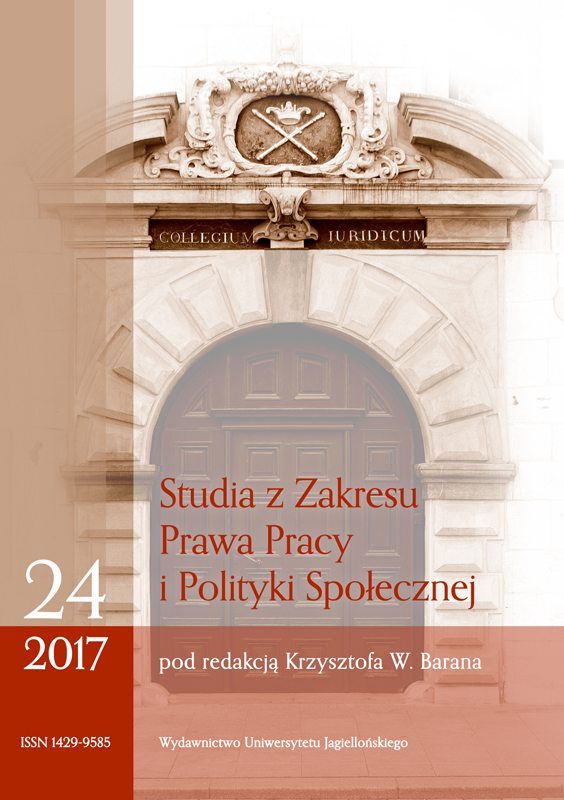Wykroczenia przeciwko prawom pracownika – analiza i postulaty de lege ferenda
Transgression against employees’ rights: The analysis and the demands of de lege ferenda
Author(s): Ewelina Kumor-JezierskaSubject(s): Law, Constitution, Jurisprudence, Human Resources in Economy, Socio-Economic Research
Published by: Wydawnictwo Uniwersytetu Jagiellońskiego
Keywords: criminal responsibility of an employer; employee; employer; transgression against employees’ rights; extensive interpretation
Summary/Abstract: In this article the author has made an analysis of the features of particular transgressions comprised in article 281 of the Labour Code, taking into account penal and legal interpretation of the law. The purpose of the analysis was to answer the question if the applied legislative technique is proper and leads to the efficient protection of the essential employees’ rights. The analysis allowed to draw conclusions and to formulate some demands towards the legislator. Characterizing the features of the objective side of many transgressions classified in the labor code, taking into account solely linguistic interpretation shall not guarantee the full protection of some employees’ rights. In the penal law literature, due to the guarantee requirements, it is assumed that linguistic interpretation, which means explaining the linguistic content of the words and phrases uses in the act based on their meaning that was assigned to them in everyday Polish language, and it is this linguistic interpretation that has the greatest significance in the penal law. The regulations of the law of transgressions cannot be subject to the extended interpretation and an illegal act, according to nullum crimen sine lege rule, stipulated in article 42, paragraph 1 of the Polish Constitution, must have precisely defined characteristics.
Journal: Studia z Zakresu Prawa Pracy i Polityki Społecznej
- Issue Year: 24/2017
- Issue No: 3
- Page Range: 213-228
- Page Count: 16
- Language: Polish

